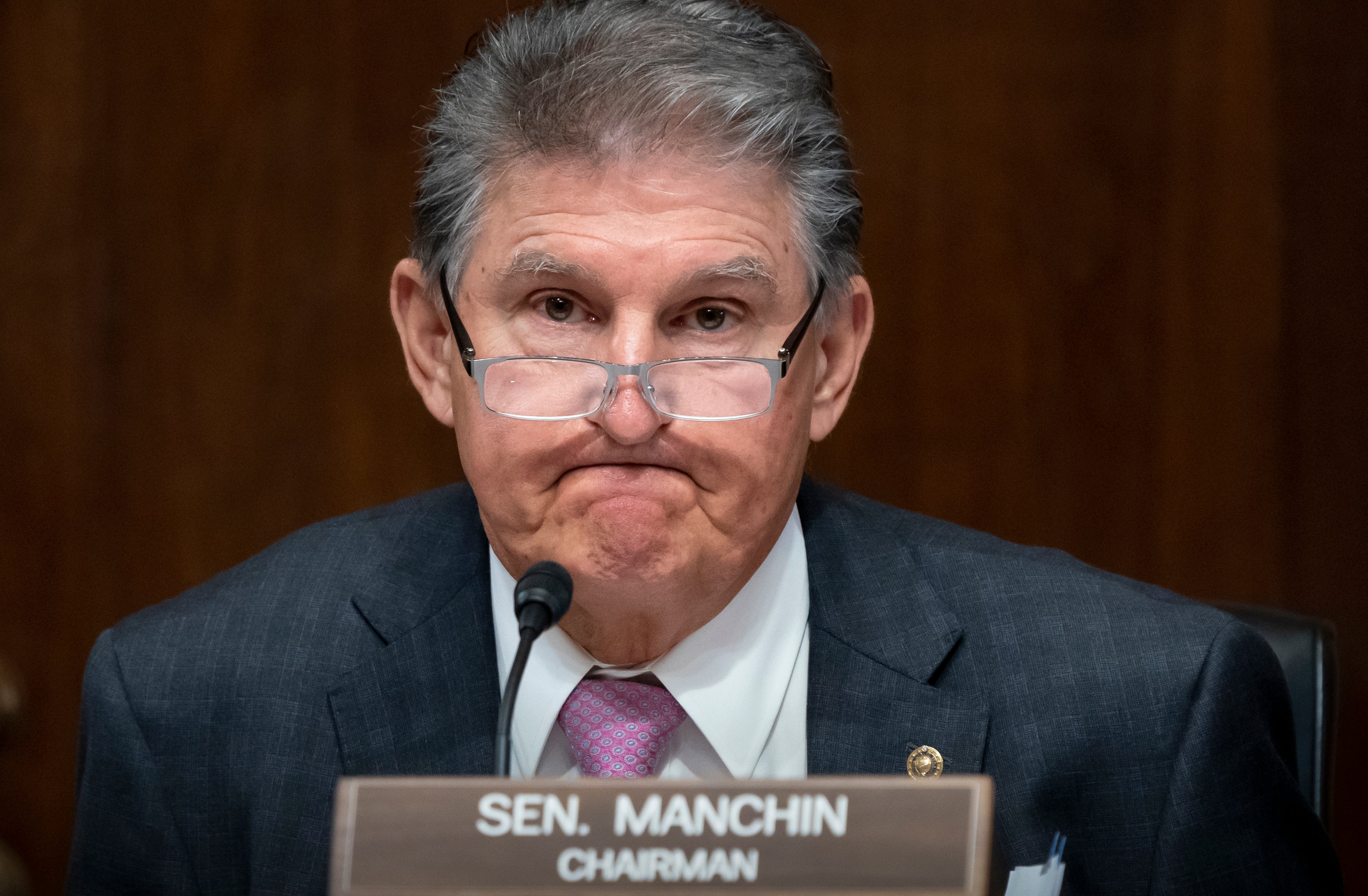Biden's climate plan at risk, Dems scramble for alternatives
A centerpiece of President Joe Biden’s climate change strategy is all but dashed

With a centerpiece of President Joe Biden s climate change strategy all but dashed, Democratic lawmakers headed to the White House Tuesday searching for new ways to narrow and reshape what had been his sweeping $3.5 trillion budget plan.
An invite list of nearly 20 centrist and progressive lawmakers were to meet separately with Biden as Democrats review a “menu” of alternative emission reducing strategies — one of the most crucial issues for voters who support the president and his party.
Among the climate-change-fighting proposals being considered are a carbon tax, a methane emissions fee, tax breaks for energy providers who hit certain goals and others, as alternate tactics that can be embraced without losing support from key members of Congress whose votes will be crucial ahead of month-end deadlines.
Biden's main plan seems all but dead. A key holdout, conservative Sen. Joe Manchin from coal-state West Virginia, has made it clear he is opposing the president's proposal t o have the government provide financial rewards to electric utilities that meet clean energy benchmarks and impose penalties on utilities that don’t, in line with the president’s goal of achieving 80% “clean electricity” by 2030.
The alternative strategies being compiled and assessed could align with Manchin’s stated goal of keeping a “fuel neutral” approach to federal policy that does not favor renewable energy sources over coal and natural gas that are dominant in his state.
Biden wants to show progress on his entire package of expanded social services and climate change efforts, now being scaled back to about $2 trillion, by the time he departs for a global climate summit next week. And he's not alone.
“It’s time we brought this thing to a head as soon as we possibly can,” Sen. Bernie Sanders the Budget Committee's progressive chairman, told reporters as Congress resumed late Monday. “I would hope that we’re gonna see some real action within the next week or so.”
Tackling climate change has been a cornerstone of the president's “Build Back Better” proposal, his sweeping plan to bolster federal government spending on health care, child care and other social services while addressing the climate crisis that Democratic voters say is one of their most important issues.
Without Manchin's support, however, the Clean Energy Performance Plan — also called the Clean Energy Payment Plan — is almost certain to be eliminated from the package, lawmakers and aides say.
“I’ve been told it would be prudent to plan alternatives,” said Sen. Sheldon Whitehouse, D-R.I.
Instead, lawmakers are eyeing a range of alternative and say the production tax credits as well as a tax on carbon and methane emissions are among the most significant ways they believe they can reduce pollutants.
This is the daily backdrop as the president works to position the U.S. to regain a leadership position in climate change strategies, preparing to depart for the U.N. Climate Summit at the end of the month. Biden's climate envoy John Kerry has warned against failure in Congress.
Rep. Ro Khanna D-Calif., a leading progressive heading for meetings at the White House, said he plans to push for climate strategies.
“I'm going to make it clear that ending the fossil fuel subsidies is one of our highest priorities,” Khanna said late Monday on a call with advocates from Our Revolution, a group aligned with Sen. Sanders, the independent from Vermont.
Khanna acknowledged the headwinds for the clean electricity proposal. “If that's unacceptable, then figuring out what alternative will get us to the goal of 50% reduction of emissions by 2030, which is what we've committed to do,” he said.
For months, Manchin has publicly and repeatedly rejected the size and scale of Biden’s plan, and the coal-state senator has particularly objected to the green energy strategies.
He and other centrist lawmakers, including Democratic Sen. Kyrsten Sinema of Arizona, have forced Biden to concede that the final price tag will likely be much smaller, likely around $2 trillion — largely paid for with higher taxes on corporations and the wealthy, those earning more than $400,000 per year.
As chairman of the Senate Energy and Natural Resources Committee, Manchin is testing the patience of his colleagues who see a once-in-a-generation opportunity to reshape government programs slipping away to his personal preferences. With Republicans fully opposed to Biden’s plans, the president needs all Democrats in the 50-50 split Senate for passage.
Under Biden’s initial climate proposal, the federal government would offer grants to power companies that increase clean energy generation by 4% each year and fine those that do not.
One alternative could be the proposal from Sen. Ron Wyden, D-Ore., the chairman of the Finance Committee, who has argued that the bulk of greenhouse gas emission cuts would come from an energy tax overhaul he is spearheading.
Among tax changes his committee is considering are tax credits for energy producers that reduce emissions, and pollution fees to be paid by industries for every ton of planet-warming carbon dioxide they emit.
A carbon tax is seen by economists as the most effective way to cut fossil fuel emissions, and the American Petroleum Institute, the chief lobbying arm of the oil and gas industry, has endorsed the idea of a price on carbon emissions.
Time slipping, Congress has set an Oct. 31 deadline for passage of Biden's big package — though even that could slide.
Majority Leader Steny Hoyer told reporters Tuesday: “If we make significant progress, that will also be success.”
___
Associated Press writer Alan Fram contributed to this report.